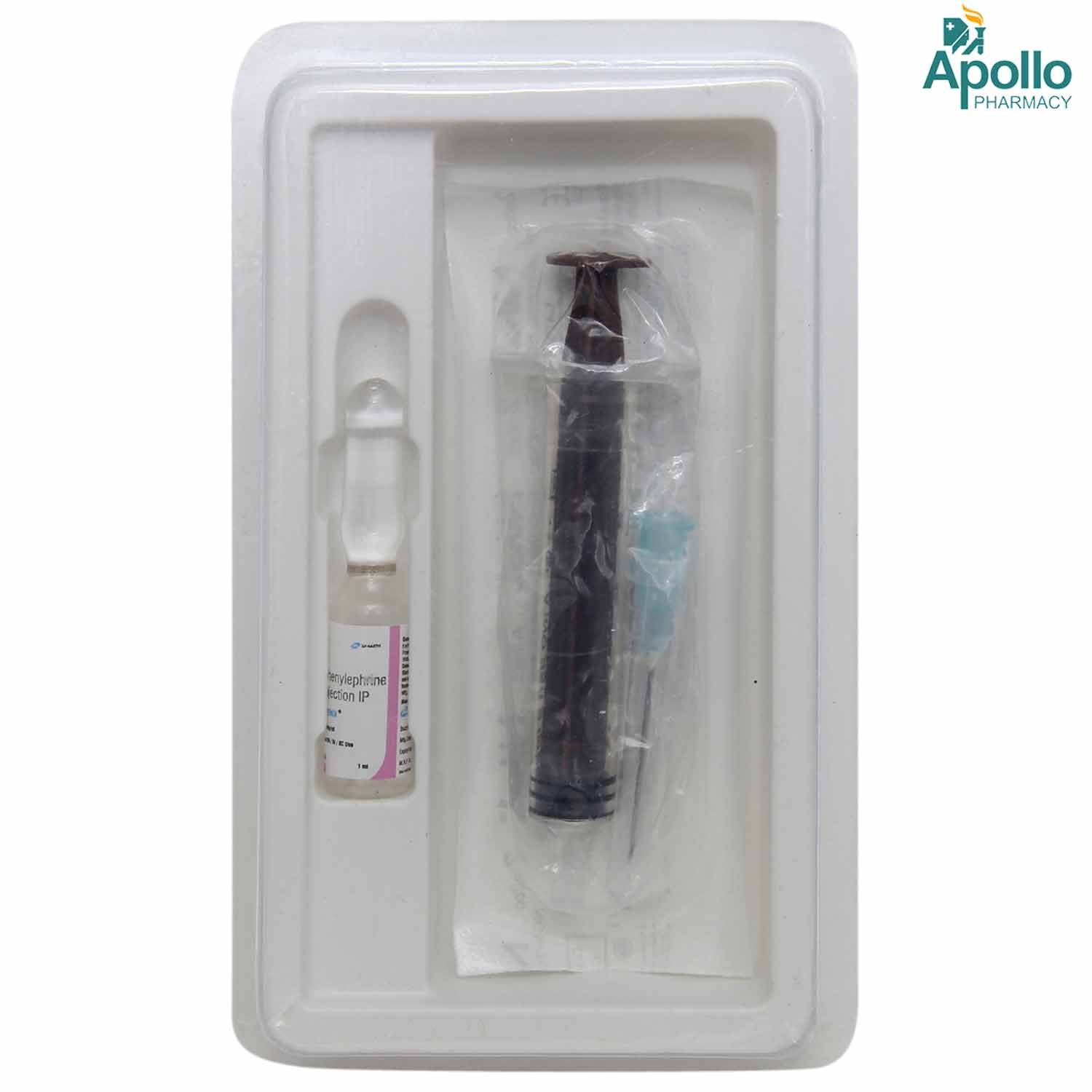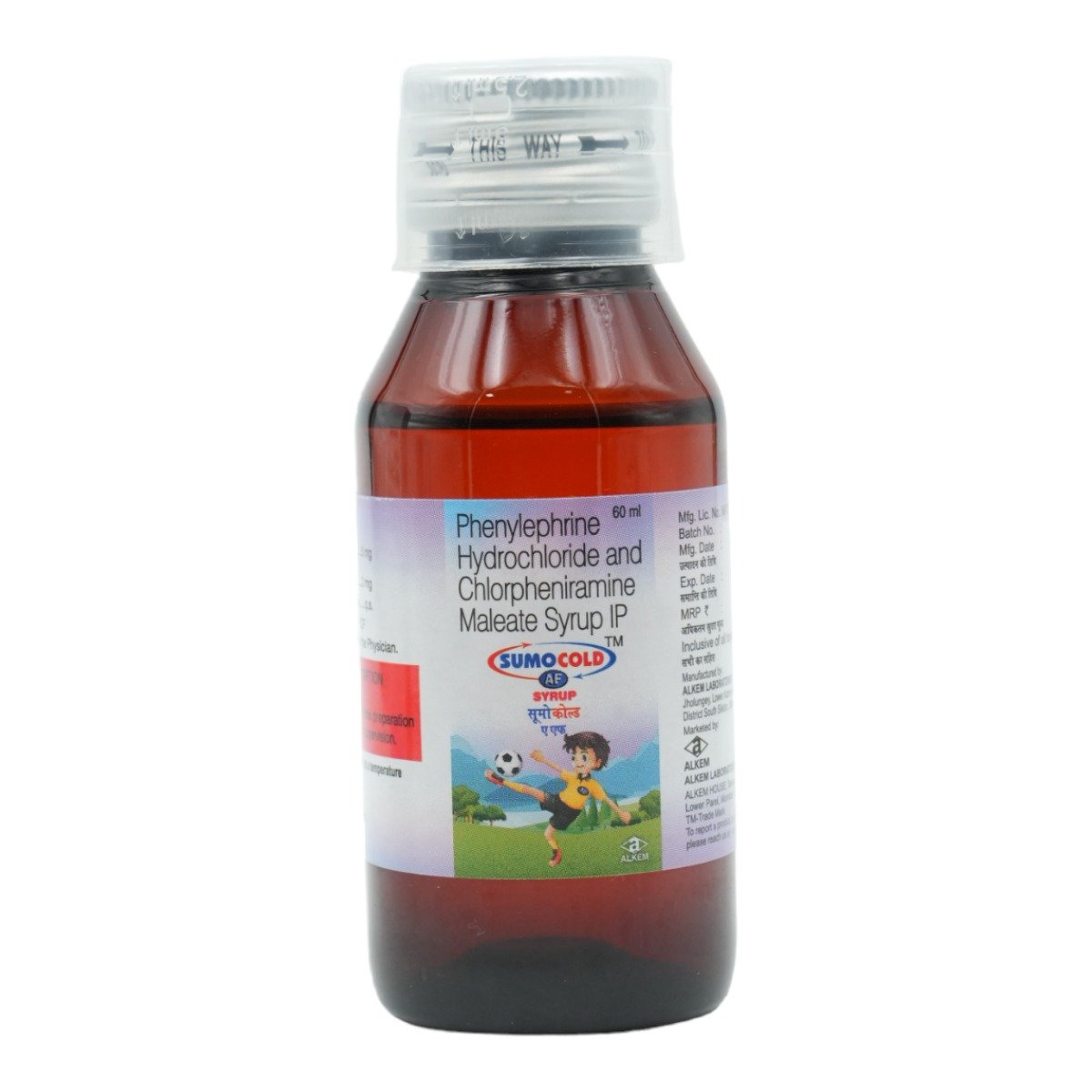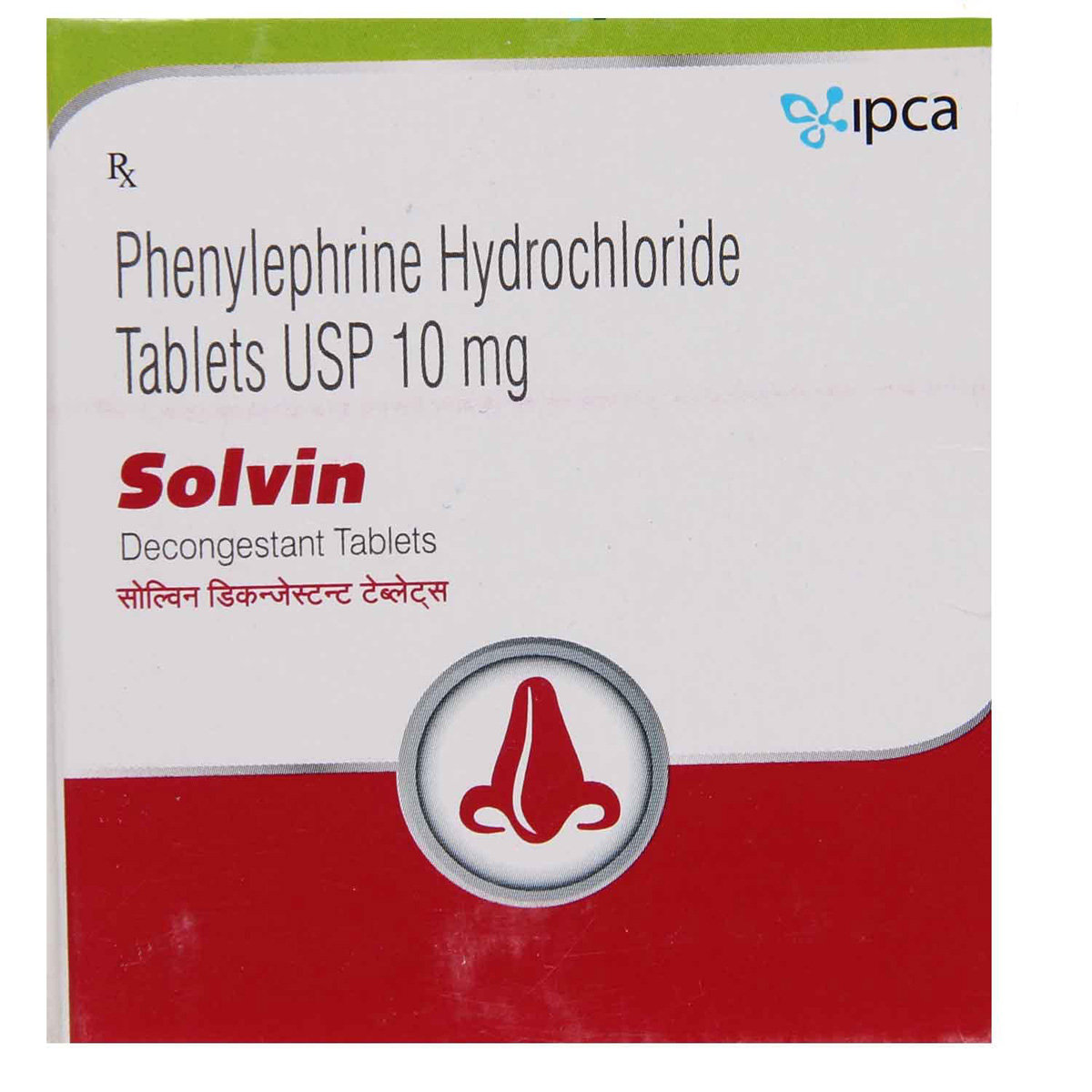Phenylephrine
About Phenylephrine
Phenylephrine belongs to a class of medications called ‘nasal decongestants’ primarily used to relieve blocked nose, stuffy nose and sinus congestion caused by the common cold, hay fever, and other allergies. Nasal congestion (stuffy nose) is a condition in which the obstruction to the airflow in and out of the nose. It can be caused by infections such as common cold, flu or sinusitis, and allergies.
Phenylephrine contains ‘Phenylephrine’ that works by shrinking the small blood vessels in the nasal passage, reducing stuffy nose, providing relief from inflammation (redness and swelling), and making it easier to breathe.
Take Phenylephrine as prescribed. You are advised to take Phenylephrine for as long as your doctor has recommended depending on your medical condition. Some people may experience loss of appetite, flushing (redness, warmth or tingly feeling), restlessness or feeling excited. Most of these side effects of Phenylephrine do not require medical attention and gradually resolve over time. However, if the side effects persist or worsen, please consult your doctor.
Avoid taking Phenylephrine and inform your doctor if you are allergic to Phenylephrine or any other medicines. If you are pregnant or breastfeeding, please inform your doctor before taking Phenylephrine. Phenylephrine is not recommended for children below six years of age. Drive only if you are alert after taking Phenylephrine. Avoid consumption of alcohol with Phenylephrine as it may increase dizziness. Do not take Phenylephrine if you are taking or have taken monoamine oxidase (MAO) inhibitor medicines (used for depression) in the past 14 days. If you have blood circulation problems, including Raynaud's syndrome (decreased blood flow to fingers), inform your doctor before taking Phenylephrine.
Uses of Phenylephrine
Medicinal Benefits
Phenylephrine contains ‘Phenylephrine’, a nasal decongestant used to treat blocked nose, stuffy nose and sinus congestion caused by the common cold, hay fever, and other allergies. It works by reducing the size of blood vessels in the nose and sinuses. Thus, it helps you to breathe normally and comfortably.
Directions for Use
Storage
Side Effects of Phenylephrine
- Loss of appetite
- Flushing (redness, warmth or tingly feeling)
- Restlessness
- Feeling excited
- Nervousness
- Dizziness
Drug Warnings
Tell your doctor if you are allergic to Phenylephrine or other medicines. If you are pregnant or breastfeeding, please inform your doctor before taking Phenylephrine. Phenylephrine is not recommended for children below six years of age. Drive only if you are alert after taking Phenylephrine. Avoid consumption of alcohol with Phenylephrine as it may increase dizziness. Do not take Phenylephrine if you are taking or have taken monoamine oxidase (MAO) inhibitor medicines (used for depression) in the past 14 days. If you have blood circulation problems, including Raynaud's syndrome (decreased blood flow to fingers), inform your doctor before taking Phenylephrine. Before taking any other cold or cough medicine with Phenylephrine, please tell your doctor.
Drug Interactions
Drug-Drug Interaction: Inform your doctor if you are taking medicines used to treat heart disease (digoxin), antidepressants (amitriptyline), drugs for helping blood circulation and controlling angina (glyceryl trinitrate), beta-blockers (atenolol), some antibiotics, other nasal decongestants and some epilepsy treatments.
Drug-Food Interaction: No interactions found.
Drug-Disease Interaction: If you have diabetes, high blood pressure, glaucoma (increased pressure in the eye), overactive thyroid gland, or prostate problems, inform your doctor before taking Phenylephrine.
Drug-Drug Interactions Checker List:
Safety Advice

Alcohol
cautionAvoid consumption of alcohol with Phenylephrine as it may increase dizziness. However, if you have any concerns, please discuss them with your doctor.

Pregnancy
consult your doctorLimited information is available. Phenylephrine is a pregnancy Category C medicine. Phenylephrine is not recommended for use during pregnancy unless clearly necessary. Therefore, if you are pregnant or planning pregnancy, please consult your doctor before taking Phenylephrine.

Breast Feeding
consult your doctorLimited information is available. Therefore, if you are a breastfeeding mother, please consult your doctor before taking Phenylephrine.

Driving
cautionPhenylephrine may cause dizziness. Hence, drive only if you are alert after taking Phenylephrine.

Liver
consult your doctorIf you have liver problems, please consult your doctor before taking Phenylephrine.

Kidney
consult your doctorIf you have kidney problems, please consult your doctor before taking Phenylephrine.

Children
cautionPhenylephrine is not recommended for children below six years of age. Phenylephrine should not be given to children below 12 years without a doctor's prescription.
Habit Forming
Diet & Lifestyle Advise
- Wash your hands with soap and water regularly to prevent the spread of germs.
- Eat plenty of foods rich in good bacteria, like yoghurt, to improve overall health.
- Drink plenty of fluids to avoid dehydration.
- Gargle with salt water for relief from sore throat.
- Avoid alcohol consumption with Phenylephrine as it may cause tiredness, drowsiness or lack of concentration.
Patients Concern
Disease/Condition Glossary
Nasal congestion is a condition in which the obstruction to the airflow in and out of the nose. It can be caused by infections such as common cold, flu or sinusitis, and allergies. Inflammation due to infection and allergic reaction can cause excessive mucus and make it difficult for it to drain from the nose. Nasal congestion symptoms are stuffy nose, sinus pain, mucus buildup, and swollen nasal tissue, difficulty breathing through the nose.
FAQs
Phenylephrine contains ‘Phenylephrine’, a nasal decongestant that works by reducing the size of blood vessels in the nose and sinuses. Thus, it helps you to breathe more easily.
You are recommended to avoid taking Phenylephrine if you have diabetes as it may increase blood sugar levels. Therefore, if you have diabetes, please inform your doctor before taking Phenylephrine.
You are recommended to use Phenylephrine for as long as your doctor has prescribed it. However, do not take Phenylephrine for more than seven days unless advised by your doctor. If the symptoms persist or worsen even after using Phenylephrine for seven days, please consult your doctor.











